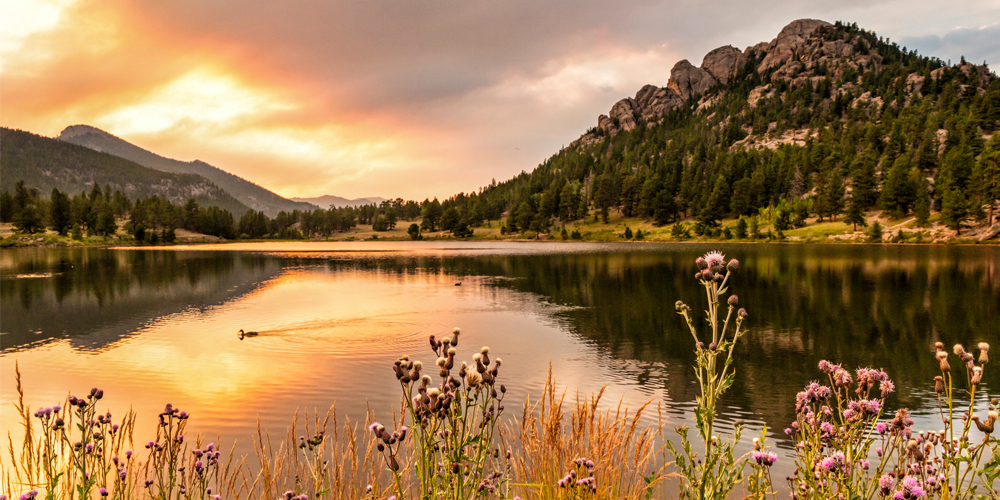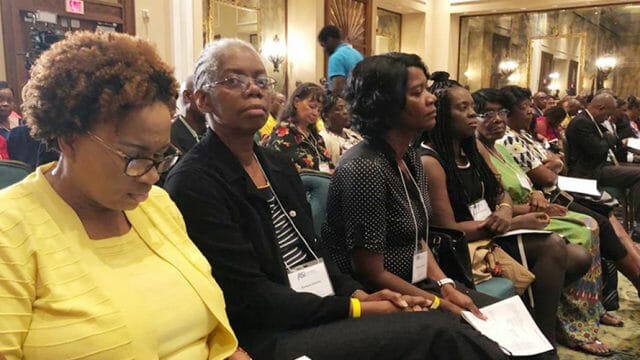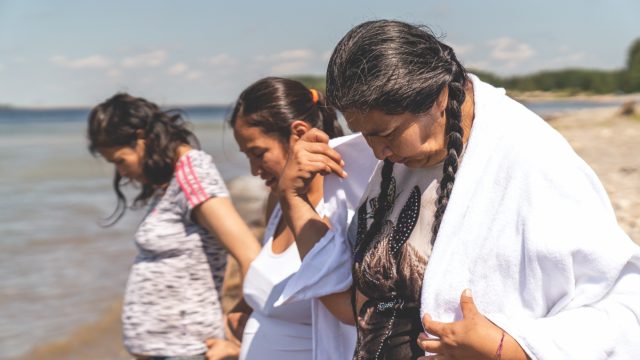“I can still see myself in the heavenly garden, walking with Jesus.”

Kuie.1 To speak of beauty is to speak of the work of the Creator. This beauty, this Creator, was encountered by the Indigenous Peoples long before European missionaries arrived. Through contact with nature, the hearts of Indigenous Peoples recognized the Great Manitou (“Great Spirit”). How could we not but conclude that supernatural hands have shaped and harmonized the seasonal cycles of human life? How can we not but deduce that there is a Higher Being who gives us life and sustains us?
The health and resilience of Indigenous Peoples through time and trauma are rooted in their connection with nature. When people, surrounded by the natural world, enter a state of awe and wonder, they experience a release of endorphins, which directly affects their psychological and physical well-being. In case of drought, the trees will lose their leaves to keep the water for their survival. Multiple studies have shown that “exposure to nature [is] linked to a host of benefits, including improved attention, lower stress, better mood, reduced risk of psychiatric disorders and even upticks in empathy and cooperation.”2
The First Peoples were unaware of these scientific facts, but they were experiencing the benefits of living in harmony with nature. Similarly, they were unaware of God’s Word, but their lifestyle, values, and many of their cultural practices were in harmony with the heart of God.
Here are some cultural elements that are congruent with the Bible:
- Incense is used for the purification ceremony, a reflection on the habits to be corrected (Ex. 30:34-36; John 11:55).
- Gathering in a circle, arranging tents in a circle in the village.
- The oral tradition passed down from generation to generation and continues to this day.
- Prayer before killing an animal for food, with the awareness that a life was being sacrificed for personal sustenance.
- Dressing in animal skins.
- Respect for the earth, for humans, for animals, and everything, since everything is necessary.
- Cultural values that are essential to community life: mutual support, honesty, humility, loyalty, courage, truth, love, and respect.
- Wisdom in three words: observe, listen, act.
- “Fear” (respect) of the superior Being’s presence in creation, similar to biblical “fear of the Lord.”
I’m not saying that everything will correspond with the Word of God. What I am saying is that you’ll find significant overlap because God has spoken to the heart of humankind through the ages and according to their particular situations.
This is how I experienced my real encounter with my Creator, from a very young age, alone in the woods and rocks. He comforted me, accompanied me, and consoled me. His creation spoke to me like a great book; my imagination made me desire to be in heaven, far away from the pain and suffering in this world. I can still see myself in the heavenly garden, walking with Jesus, who names the plants, flowers, trees, and all the animals that He knows without question.
Marie-Émilie Lacroix is the Quebec representative for the Indigenous Ministries of the Seventh-day Adventist Church in Canada.
The original version of this commentary was posted on the October 2021 issue of Canadian Adventist Messenger.
1This is a rich, heartfelt “hello.”
2Kirsten Weir, “Nurtured by Nature,” American PsychologicalAssociation, April 1, 2020, https://www.apa.org/monitor/2020/04/nurtured-nature.








